|
A pilot project in partnership with Qinyuan in Gansu Executive SummaryQinyuan Microloans is a pilot project co-sponsored by Transparent Fish Fund and Qinyuan Rural Development in Gansu. The project was launched on May 12, 2015, when twenty families were selected for loans of 2000 yuan (about $320 USD) each. Their investments—all in livestock of their own choice—have shown healthy progress and been documented. Qinyuan, the organization managing the local affairs, demonstrated excellent grassroots services, although several issues were noticed and required further attention. The village’s inhabitants, environment, and cultural background were described for future reference. Qinyuan’s other projects in the area were also explored for informational purposes. A follow up trip has been tentatively set for August this year after Ramadan. Transportation We started out from Lanzhou and took a three-hour bus ride to Hui Ning County. From there we took a rural bus for thirty minutes to reach the Muslim town of Xin Tian Bao, which is an administrative designation under Hui Ning County to manage thirteen villages, including our destination, Lu Cha village. The topography changed at this point, and the rest of the thirteen kilometers (eight miles) were on harsh roads winding through the mountains. Trying to make our travel less rough, the Qinyuan staff representative Mr. Wang Man Ting hired a minivan for us, and he rode a motorcycle himself to lead the way. Qinyuan kept this motorcycle in town for their transportation purposes. Road Conditions On the way up, we saw quite a few pieces of heavy duty machinery working on the road. Although the road had been undergoing maintenance since the beginning of the year, we didn’t notice much difference from our visit last winter. In its current condition, this road isn’t serviceable in heavy rain or snow. Unfortunately, we learned that through personal experience. It had rained two days before our arrival, and halfway through our bumpy ride, the minivan got stuck in the mud. We managed to push the van out, only to have the hard working engine quit after that. While we were stranded in the middle of nowhere, the little motorcycle came to the rescue. It became the temporary means of transportation for the three of us, and we made it to the Cai Zi community of Lu Cha village as planned. En Route to the VillageTelecommunication In that area, internet connection and cell phone services aren’t available. However, Mr. Wang had his trade secret of running up to the hilltops where the weak signals sufficed for daily communication with his office. Life in the VillageVillage in the Summer Although the road conditions weren’t impressive, the sight of the village in the summer was lively. Birds were flying and the grass was thriving. We saw people working in the fields and sheep grazing on the hills. Community Leader As soon as we arrived at the Cai Zi community, we visited the community leader who hosted us during our stay. His family is Muslim and lives in a house that accommodates three generations. His older brother lives next door, so it’s convenient for the two families to eat meals together. Family Life This community has 26 families. Two are from Han descent, and the rest are Hui or Muslim families. They are grouped in three areas, separated by a thirty minute walking distance. While we were there we walked, although Mr. Wang usually rode his motorcycle when he visited, as long as the weather didn’t affect the roads. Education The school is located far away. Children have to walk at least an hour to attend; those who live in the valley behind the hills have to walk one and a half hours. The general attitude towards education is not as enthusiastic as that in Hui Ning City. Parents rarely accompany their children to read, and the whole area has only six college students. Housing The majority of the houses were rebuilt in the last two years. Each house that qualified received a government subsidy of at least 10,000 yuan (about $1600 USD). To qualify, the new house had to be made fully from brick. A few of the new houses that combined earth and brick in the structure didn’t get subsidized. Besides the house that we stayed in, none of the others had a bathroom. The community leader introduced us to some local customs and provided tips for us visitors. He emphasized that visitors shouldn’t touch water in a house. If we needed water, we should ask the host to handle it. All of Hui Ning County is in an arid region, so the villagers depend on rain to water their crops. Rain is also collected in pits to be used for drinking water. Daily Routine The villagers are quite diligent in how they live. Take our host family, for example. In keeping with their faith, the whole family got up at 5:00 am for their first worship time of the day. They ate breakfast at 6:00 am and then worked from 7:00 am to noon. After the mid-day break, they resumed work at 3:00 pm and worked until 7:00 pm. In between, there were four more worship times throughout the day. Dinner time would be 9:00 pm. Community Life The community has a neighborly feel, with people living humbly and in harmony with one another. Many houses don’t have fences, and those that have fences don’t lock them. The area has no stores or retail activity. The closest convenience store is eight miles away on the mountain road, back to town in Xin Tian Bao. Project Implementation1) Borrower Selection To launch this pilot project, twenty families were selected to experiment with the loans. The Cai Zi community has a total of 26 families, of which 24 were interested in borrowing. In order to ensure a fair selection of the 20 families, they were drawn at random on May 12, 2015. (This classic selection method is still popular because there isn’t a better way to get consensus among the villagers. If selection is based on need, it’s difficult to qualify one household over the other.) 2) Loan Release The legal documents were explained and discussed. Each borrower signed the paperwork and received the loan of 2,000 yuan on May 12th. 3) Investment Skill The villagers’ primary income was from farming and raising animals. An average household had 20-40 mu (3-6.5 acres) of land. The advantages of this village were its expansive hilly land, flourishing green pastures, and the villagers’ developed agricultural skills. Using the microloans, eighteen families purchased sheep and two families bought cows. The villagers demonstrated talent in purchasing livestock. One newly purchased sheep was already pregnant and gave birth ten days later. This was an exceptionally quick return. As for the cows, their cost was higher, and they could only breed one calf a year. But the advantage was that a new cow would be worth 8000 yuan (about $1300 USD). 4) Follow Up During the three days of our trip, we visited the 20 families in their three areas—two on the hills and one in the valley. We conducted questionnaires, took photos, and recorded video interviews. To accommodate those who were busy working in the fields, we completed our surveys right where they were working. 5) Loan Repayment In the interviews, the villagers expressed their confidence to repay the loans by the end of the year. They got a head start with the low sheep price to begin with, and they did the calculations. The loan of 2000 yuan could buy four sheep—two ewes and two lambs. The two ewes would reproduce four to six lambs each year. So selling the new lambs would be enough to repay the loan. 6) Loan Relevance and Benefits The villagers appreciated the loan and knew how to use it. We’ve already seen short-term benefits, such as the financial gain from the mature animals and the increased self-confidence in the families. The long-term benefits will be explored in a different report. Project Issues1) Fee Discrepancy It came to our attention that Qinyuan charged 100 yuan (about $16 USD) from each microloan. In the contract it was described as a non-refundable administration fee, which was not a part of the loan repayment. We asked Mr. Wang about it on site and then later asked Mr. Ma, who is in charge of Qinyuan. Mr. Ma explained it as a technical measure: “Without a deposit in place, people could keep a loan for no purpose. A deposit screens the applicants who need a loan.” The total collected fees of 2000 yuan from the 20 loans would not go back to the villagers. Mr. Ma further explained, “This fund supports administration costs, such as financial management and printing.” According to our understanding, Mr. Ma had said that their organization would absorb the administration costs. 2) Weak Social Media Involvement Since the launch of the microloan project, Qinyuan hadn’t contributed much to the blogs. During the discussion of this issue, Qinyuan’s reply was that this was because of busyness or being in the middle of civil registration. 3) Women’s Social Status Due to the restrictive religious tradition, the females in the village played a subordinate role. The women lacked education, so it was their men who read and signed the loan contract. The women mostly labored in the field and at home. If these women developed more life skills and better knowledge, they would be able to help their families prosper more. 4) Privacy Protection When we took photos and recorded videos in the village, Mr. Wang had asked that no faces would appear on the website. Back at the office, we had a discussion with Mr. Ma regarding our intention to introduce the 20 families on the TFish website. We learned that Mr. Ma had promised the leader of the Cai Zi community that no family’s financial information would be disclosed. Mr. Ma wasn’t sure we could introduce each individual household, but he said he would provide enough information so we could make a general collective introduction on the web. Projects Sponsored by Qinyuan and OxfamQinyuan is partnering with another organization called Oxfam Hong Kong to implement several initiatives in the area. 1) Installing Home Lavatories Cost assessments and studies are ongoing for 86 potential units. Low income families would receive a full subsidy of 2000 yuan. The rest of the families would contribute co-payments accordingly. 2) Health Exams for Women This project has already been completed. Physical checkups were available for residents in the Xin Tian Bao Muslim township. However, the villagers didn’t take full advantage of the services due to their cultural conservative nature. Forty three people went through the checkup, although many skipped the gynecological exams. 3) Village Cooperatives The project is meant to provide the villagers with various supplies that they need for their daily farming lives, such as fertilizer, seed, and vegetables. This would help decrease the burden of their initial production and develop trust among the villagers for the cooperative project. Once a foundation has been built, the villagers can have a cushion of capital to work with. This program is still in its initial stage. Qinyuan has been working on registration with the tax department. Qinyuan and Mr. Wang Man TingQinyuan is our strategic partner in this project, and Mr. Wang Man Ting is their onsite representative. He grew up in a rural village, majored in social work at college, and has been with Qinyuan for about half a year. Although Mr. Wang is of Han descent, he is willing to learn Muslim customs. He usually stays in Lu Cha village for ten to fifteen days every month. He’s accustomed to the way the villagers live, he speaks the local dialect fluently, and he communicates well. We witnessed a five-year-old asking Mr. Wang, “Are you coming to check on our sheep?” That could be a little piece of evidence that Mr. Wang has been practicing due diligence on the microloan project. Qinyuan keeps a motorcycle in town to improve efficiency, increase mobility, and provide higher level service. Mr. Wang provided great help during our three-day visit. Working alongside him, we were impressed with Mr. Ma’s recruitment of Mr. Wang for Qinyuan. We noticed that Mr. Wang used his spare time to help the community leader do some farming work, and he blended himself into the host’s family. He has developed a solid foundation for future social work. ConclusionThis field visit was worthwhile in terms of finding information and gaining experience. The pilot project has been a success so far, but several issues still need to be addressed. We will approach Mr. Ma for further discussion about the unexpected deposit fee. We’ll look for a consensus on the already charged fees and work out a future agreement for the administrative costs. Qinyuan has demonstrated their strengths, but they are weak on the social media campaign. We discussed blog writing with Mr. Wang while visiting the village. We’ll ask them to provide more information for us, and we’ll help them post. We’ll also invite them to our office for some hands-on practice with website navigation. To improve the women’s life skills, Mr. Wang has been thinking about sending instructors to help.
Our follow up trip has been tentatively set for August, after Ramadan. The objectives of the trip will be reviewing the life skills training for women, monitoring the progress of the microloans, and observing the projects that Qinyuan and Oxfam are partnering to implement. Original article written by TFish Lanzhou staff, Aiju Chang, translated by Kai Chao, and edited by Carolyn D. Comments are closed.
|
TFISH FUND BLOGWe update news and reports directly from the field written by our NGO partners daily. Top PostsPHOTOS & VIDEOSIN THE NEWSCategories
All
Archives
August 2017
|

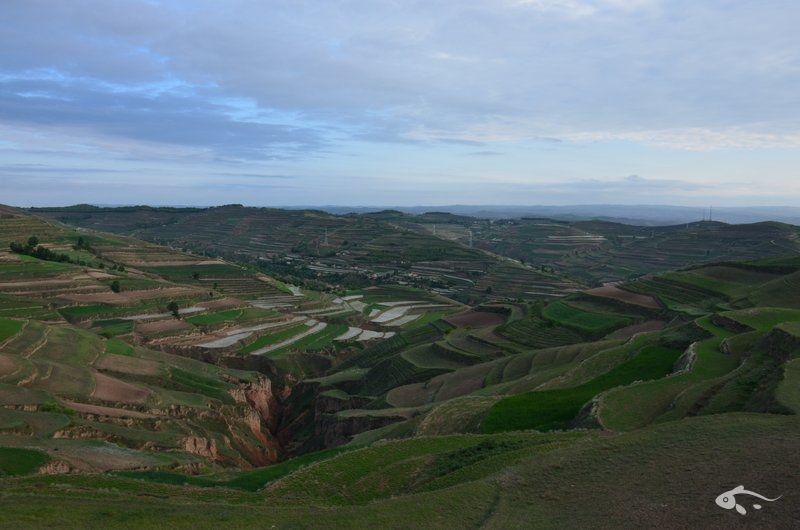
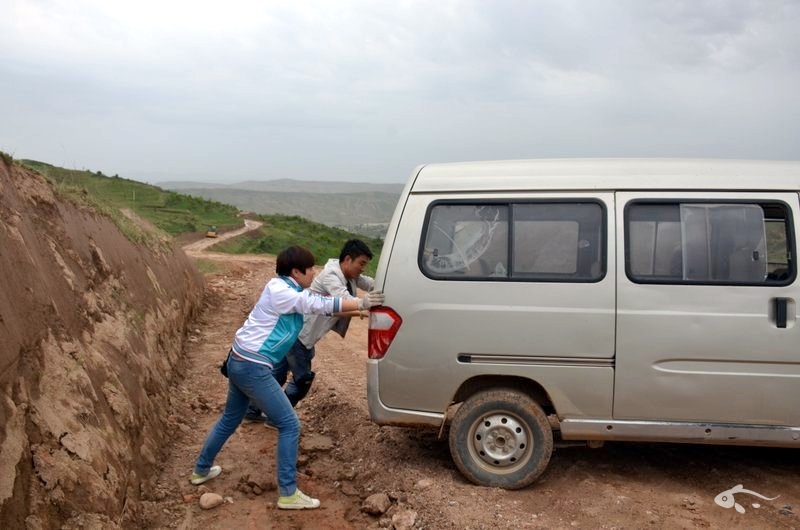
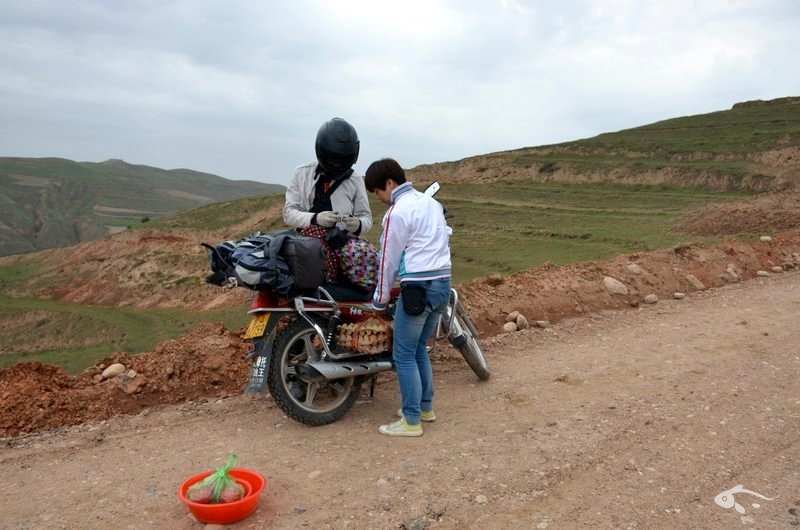
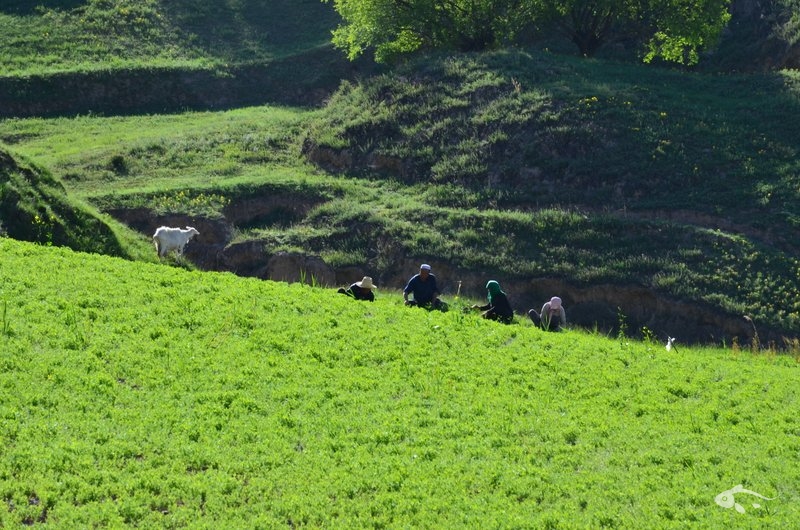
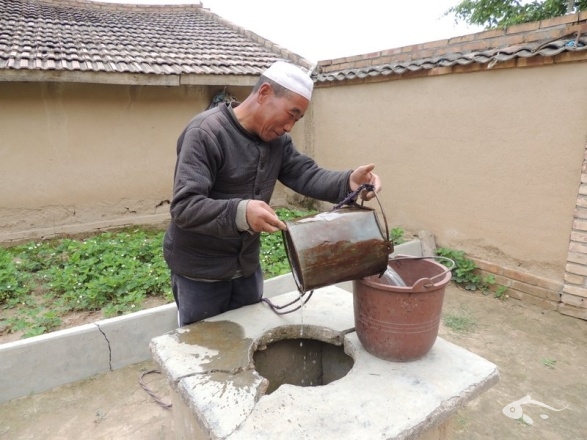
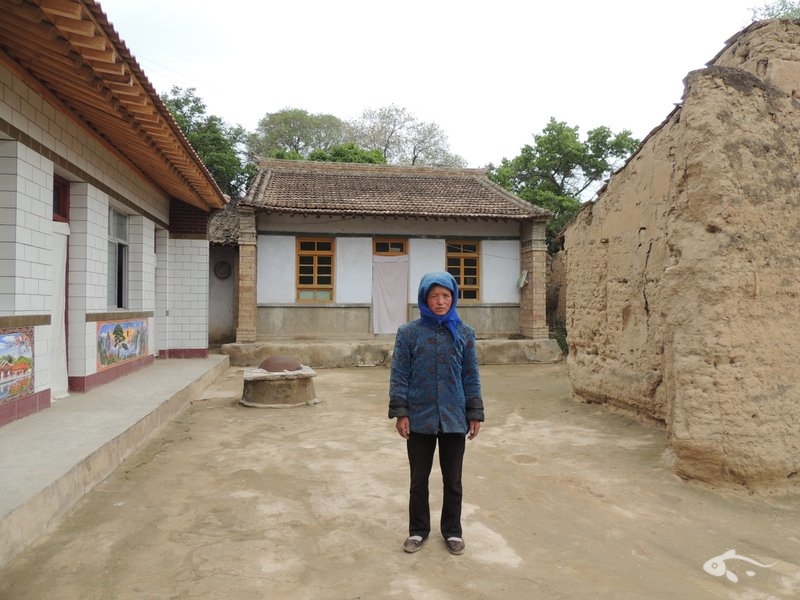
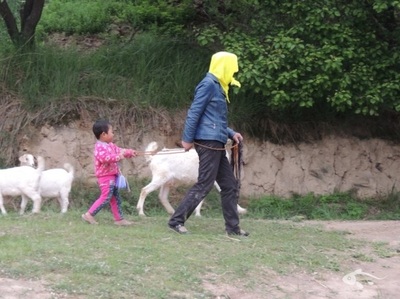
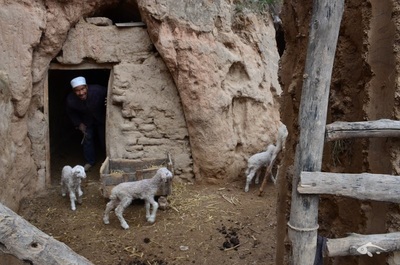
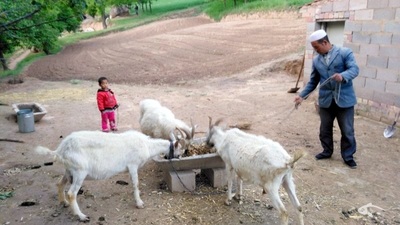
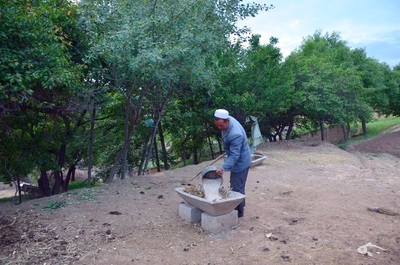

 RSS Feed
RSS Feed